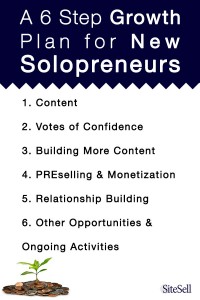On Thursday, The Federal Trade Commission (FTC) announced a new proposal to ban employers from utilizing noncompete clauses.
Noncompete clauses have historically hindered upward mobility for low-wage earners by preventing them from changing employers. This dynamic has kept wages low for everyone and hindered competition, according to the FTC. In order to address this, the FTC’s new proposal aims to provide employees (especially those in low paying jobs) with the ability to move up in their industry and/or allow them to start their own businesses, spurring higher wages and competition.
The fundamental purpose of a noncompete clause is to prevent employees from leaving their current employer and improperly taking information obtained from their former employer and sharing it with a new employer, resulting in the new employer having an unfair advantage. For this reason, the risk for companies is highest with highly skilled and compensated employees. However, many businesses use noncompete clauses for all of their workforce, not just for highly skilled and highly compensated employees.
For instance, in a 2016 case involving Jimmy John’s, the company was sued because they were requiring minimum wage workers to sign noncompete clauses, preventing them from obtaining new employment at another sandwich shop. This is very different, for example, from a high-end chef at a Michelin-starred restaurant, who may be responsible for creating a secret sauce or developing specialized cooking techniques and to whom a company may be paying wages of six figures.
It remains to be seen as to whether the FTC will decide to distinguish between lower-wage workers and higher-wage workers as some states have done. The public is currently able to provide comments, and this period may impact the FTC’s decision.

Based on what we know now, here are some of the biggest potential impacts of banning noncompete clauses:
States are already restricting noncompetes
The new proposal could set a new federal policy and minimize state-by-state differences.
Many states have already recognized the negative impact of noncompete clauses and have state laws prohibiting such clauses except in very limited circumstances. For example, California, North Dakota and Oklahoma generally prohibit noncompetes, while others, such as Illinois, Maine, Maryland, Massachusetts, New Hampshire, Nevada, Oregon, Rhode Island, Virginia, and Washington, restrict their uses by setting a wage threshold.
An emphasis on nondisclosure agreements and trade secret laws
The new policy may create a renewed emphasis on nondisclosure agreements, trade secret laws, and non-solicitation agreements.
Although business owners may raise concerns that a prohibition on noncompete clauses will impact their businesses, they still have several protections. For instance, even in a state like California (where noncompete clauses are generally unenforceable) companies can still protect themselves. Since California has prohibited noncompete clauses for some time now, companies have opted to include nondisclosure language or confidentiality provisions that protect companies from unfair advantage by their competitors. By including nondisclosure language, an employee could be prevented from unfairly taking advantage of the experience or know-how gained from their prior employer, making that employee less valuable to a prospective employer, or the prospective employer may find that there is too much of a risk of litigation or liability in hiring that employee.
However, companies should be careful in crafting language that a court may consider overbroad. If the language is overbroad so that it essentially looks like a noncompete clauses, a court may find it unenforceable. This was also likely a concern of the FTC, since its proposal included a prohibition on overbroad nondisclosure agreements.
Plus, states with prohibitions on noncompete clauses oftentimes include exceptions. For example, California recognizes limited exceptions for enforcing noncompetes (i.e., if it is in connection with the sale of a business’ goodwill, an owner’s sale of all ownership interest in a business or in connection with the dissolution of a partnership or limited liability company). Thus, a company could protect itself from unfair competition when it has invested substantial money in acquiring a new business.
A renewed focus on employee retention
Businesses worried about losing valued talent can, and will, focus on employee engagement to retain top talent. Offering a dynamic and engaging workplace where employees are respected and appropriately challenged can have a strong impact on employee retention.
Some workplaces have increased wages and fringe benefits in an effort to retain employees.
And notably, the FTC’s proposed rule is silent regarding non-solicitation agreements, which means businesses can continue to use non-solicitation agreements to stop former employees from soliciting clients and employees from their former employer.
A new litigation landscape
With the Great Resignation and the tightening labor market, the number of lawsuits involving noncompete clauses has increased significantly. While prior to the Great Resignation, companies opted to negotiate with employees regarding the limitations or simply choose not to enforce the noncompete to save litigation costs, many are now taking a more aggressive approach.
Employers should work with a trusted HR expert or employment lawyer to categorize their needs and review their agreements. Then , they should identify which employees they are concerned will compete with them, which employees pose a risk if they solicit their clients and/or employees and which employees have access to proprietary and confidential business information. Once they have completed the evaluation, employers can move forward with enforceable agreements and with realigning their businesses to limit who has access to highly sensitive information that could harm the business if a person were to go to a competitor.
And workers should be prepared for this new approach.
Vanessa Matsis-McCready is the associate general counsel and director of human resources for Engage PEO, while Mariko Paul is an assistant general counsel and HR consultant for Engage PEO.
(23)
Report Post



